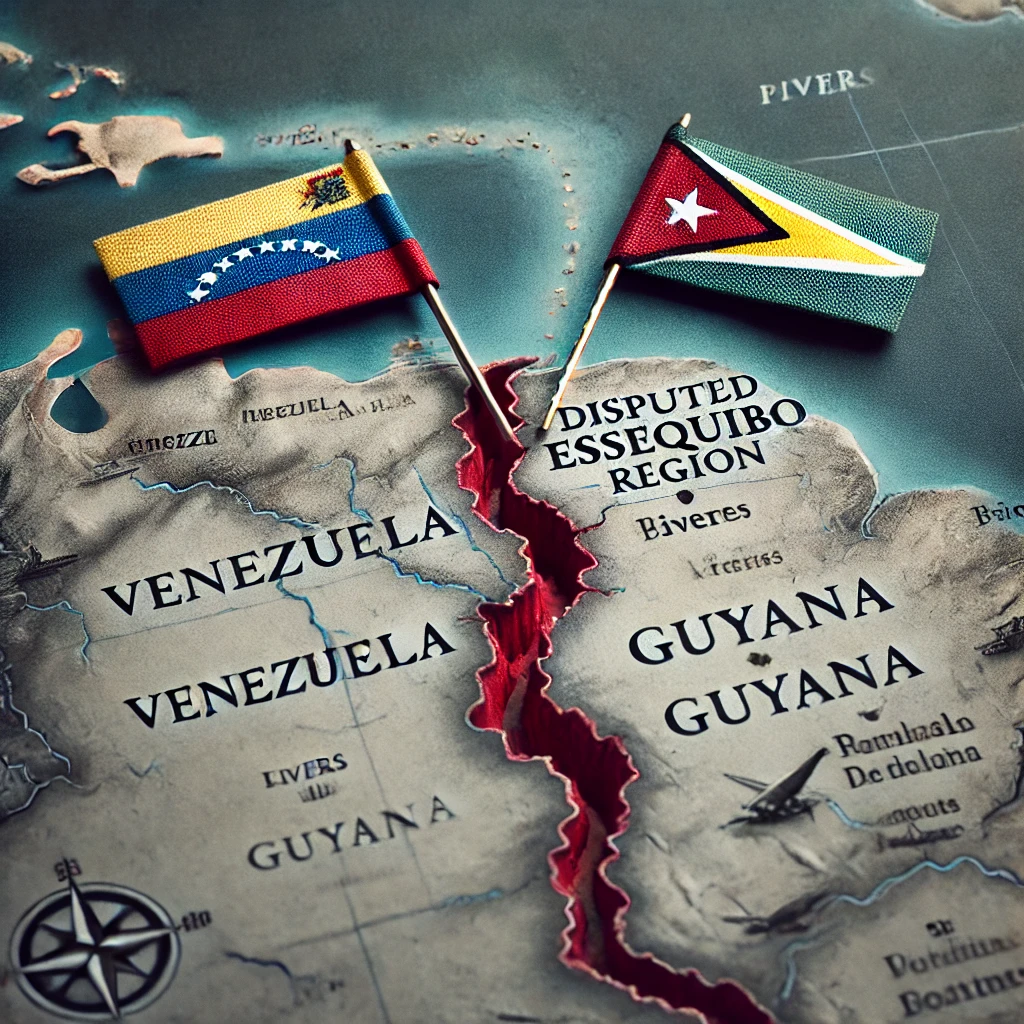
The territorial dispute over Essequibo dates back more than a century, involving Venezuela and Guyana in a highly complex diplomatic conflict. The Essequibo region, rich in oil and minerals, represents about 70% of the territory of Guyana and has been claimed by Venezuela, that considers the arbitration decision of 1899, which gave control of the area to British Guiana (current Guyana).
In 1899, an international court established the borders between Venezuela and what was then British Guiana, granting the territory of Essequibo to Guyana. A Venezuela, However, claims that the decision was unfair and influenced by British interests, and has since maintained its territorial claim. This imbroglio gained prominence again in the 21st century, especially after the discovery of offshore oil reserves in the disputed area, attracting the attention of multinationals and strengthening Venezuelan aspirations for the territory.
In 2023, the government of Venezuela, under the leadership of Nicolás Maduro, organized a referendum to validate the annexation of Essequibo. Guyana, in its turn, seeks support at the International Court of Justice (CIJ) to resolve the issue peacefully, based on previous decisions recognizing Guyanese sovereignty. Besides that, Guyana has strengthened ties with countries such as the United States and regional powers, while intensifying military surveillance on its border.
Venezuelan mobilization is not restricted to the diplomatic level; Caracas recently announced plans to grant oil exploration licenses in the disputed area, which increased tensions. The Guyanese response was immediate, with warnings about the risk of military escalation, and the country requested assistance from its allies, including U.S. Southern Command, to protect its sovereignty(DW).
Positions of Countries
- Venezuela: Maduro insists that Venezuela has a historic right to the Essequibo. The government argues that the decision to 1899 was flawed and does not represent the country's interests. For Caracas, the economic exploitation of the region by foreign companies without their authorization is an affront to their sovereignty.
- Guiana: Guyana reaffirms its sovereignty over the territory and seeks solutions through the ICJ. The Guyanese government also warns of the implications of an armed conflict, which could destabilize the region and compromise the security of international investments. President Irfaan Ali has been emphatic in seeking international support for the peaceful resolution of the dispute.
Future Scenarios
- Pessimistic: In a negative scenario, Venezuelan military action to seize Essequibo could generate an armed conflict. This clash would involve, The six largest fossil fuel companies in Europe, neighboring countries like Brazil, who has already expressed concern about tensions. Instability in the region would harm the economy of both countries, directly affecting natural resource exploration activities.
- Realistic: The most likely scenario would be for the impasse to continue, no significant military actions, but with constant mobilizations and fierce rhetoric between the two countries. The ICJ process would drag on for years, with little chance of a definitive solution in the short term. International organizations such as UNASUR or the UN would continue to press for diplomatic negotiations, keeping tensions controlled.
- Optimistic: In the best case scenario, Both countries would agree to follow ICJ rulings or reach a bilateral agreement to jointly exploit the region's resources. This type of solution would avoid conflict and bring economic benefits to both countries., strengthening regional cooperation and reducing long-term tensions.
The future of this dispute depends on internal and external factors, including the positioning of great powers and international organizations. An armed conflict can be avoided, but the maintenance of tensions makes the role of multilateral diplomacy essential to guarantee a peaceful resolution.
